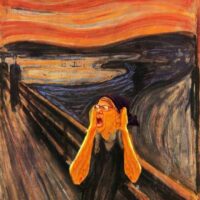There is a saying, “Pity the unhappy rich man for unlike the poor man, he cannot blame his unhappiness on poverty.”
In a recent film “Ten Questions to Ask the Dalai Lama,” by Rick Ray many wonderful and interesting insights arise. One of them that the author notes, is the relative happiness of the poor in Calcutta’s ghettos as compared to the richest in the world. Many reasons for this are offered in the media. One, is that the poor have less to lose. Another is that they realize what is really important in life, personal relationships. Many philosophers state that they are too ignorant to know of their own unhappiness.
Regardless of the reason one concludes, many philosophers state that “Dissatisfaction is the mother of all philosophy.” In other words it is our own discontent which spawns our search for meaning, justice and order. In general, when all of our physical needs are met we have the time and wherewithal to investigate the deeper mental, spiritual, and emotional issues. Images of Mazlow’s Hierarchy of Needs bubble to the surface here.

Yet rather than focus on the individual steps in this psychological model, my philosophy of living involves discovering unifying principles which unite them all. In other words, why do I bother to breath, eat, or make love?
Yes a starving person initially needs no reason, but what about the ascetic monk? He meets his spiritual needs whilst simultaneously feeding the physical. For me, this is the goal of life, an integrated perspective. For the first time in the current human epoch, we have a chance as leaders to model this type of behavior: The spiritually and physically realized human. This is my dream and goal and I feel many share it.
Reference:
Ray, Rick (2006). 10 Questions for the Dalai Lama. Monterey, CA: Monterey Films. http://www.thedalailamamovie.com/
Swami Krishnananda (2007) Introduction to the Philosophy of Yoga. Rishikesh, India: The Divine Life Society. Retrieved September 27, 2007, from http://www.swami-krishnananda.org/intro/intro_02.html
Maslow, Abraham (1943) “A Theory of Human Motivation.” Psychological Review, 50, 370-96. Retrieved September 27, 2007 from http://en.wikipedia.org/wiki/Maslow’s_hierarchy_of_needs







Leave A Comment